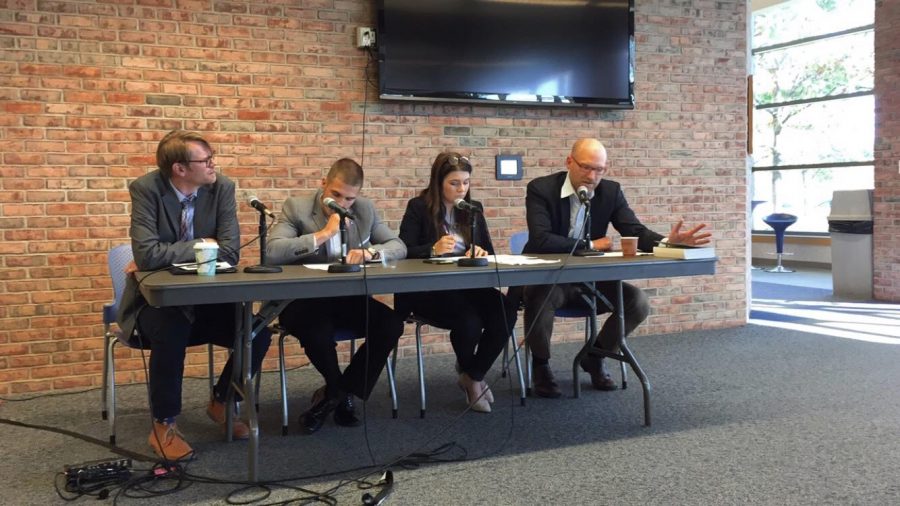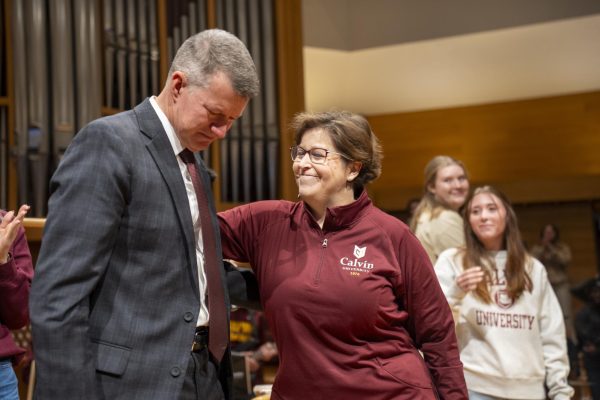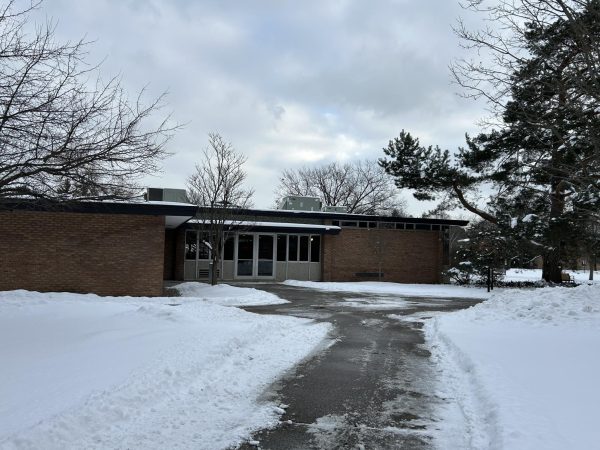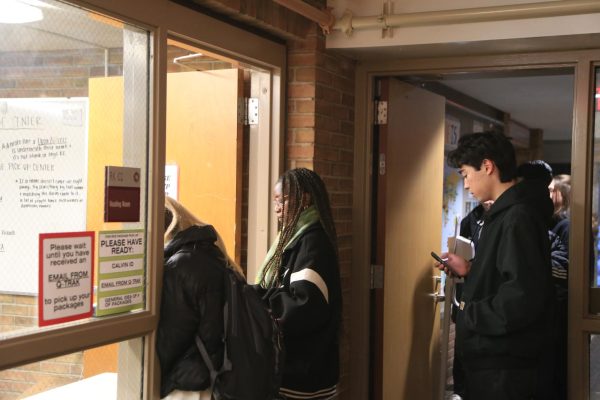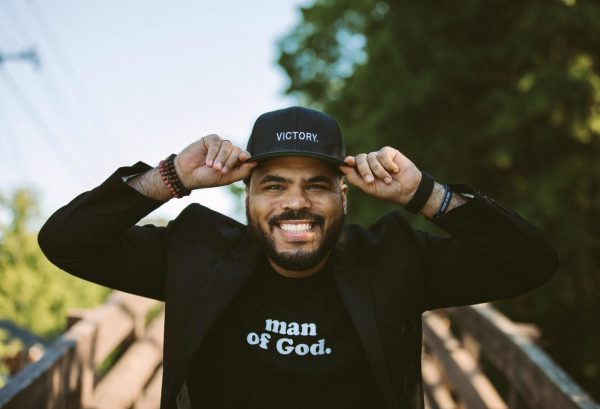Constitution series debates political polarization
Mikael Pelz, Matt Seafield, Kennedy Genzink and Kevin den Dulk participated in the second debate in the Constitution Series. Photo by Isabella Ebbert.
In the second debate between Calvin Republicans and Democrats, the largely controversial topic addresses whether the Constitution is to blame for today’s drastic political polarization.
Debating for the Republican point of view was Calvin sophomore senator Kennedy Genzink along with Kevin den Dulk, head of the political science department. While Calvin senior senator Matt Seafield argued for the Democratic viewpoint with political science professor Mikael Pelz.
In their opening statements, Seafield and Pelz argued that the Constitution is responsible for today’s political polarization because the document was “based on values that are inherently competing with one another,” according to Seafield.
Pelz agreed, adding that the Constitution may not be the exact root of political controversy today, but has definitely aggravated society in ways of personal controversy among citizens. He stated:
“Rather than acknowledging that the problem is found in certain elements of our constitutionalism, both parties turn on each other, thus perpetuating political polarization.”
While Genzink took a social perspective on the topic, den Dulk took a more historical approach.
The polarity of the debaters themselves became more apparent as Genzink strongly disagreed with the Democratic perspective in her opening statement. She believes that the basis of the divide isn’t a flawed constitution, but the flawed action of a people “misinterpreting right and left morals.”
“There’s no better place to start than with the Constitution’s chief architect,” said den Dulk. He then directed the debate toward James Madison’s supposed intent regarding the document. While the representatives of the Democratic side believe that such drastic polarization between parties is not an ineradicable quality of the masses, the Republican representatives believe polarization to be unavoidable.
“Madison says we come to politics with our deep-seated, ready-made group identities that we rarely question,” den Dulk said.
Student senator Grace Swanson was among the crowd of Calvin students.
“I think the debate went well. It was cool to see the different perspectives juxtaposed.”
Swanson thinks there is rarely any form of drastic political polarization in the Calvin community. While she didn’t leave the debate with any acute unanswered questions, Swanson said that it would have been interesting to hear about polarization from third party candidates as well.
“As a senator, I get to interact with lots of people and hear different perspectives. This is helpful when considering projects and actions that Senate may take.”



